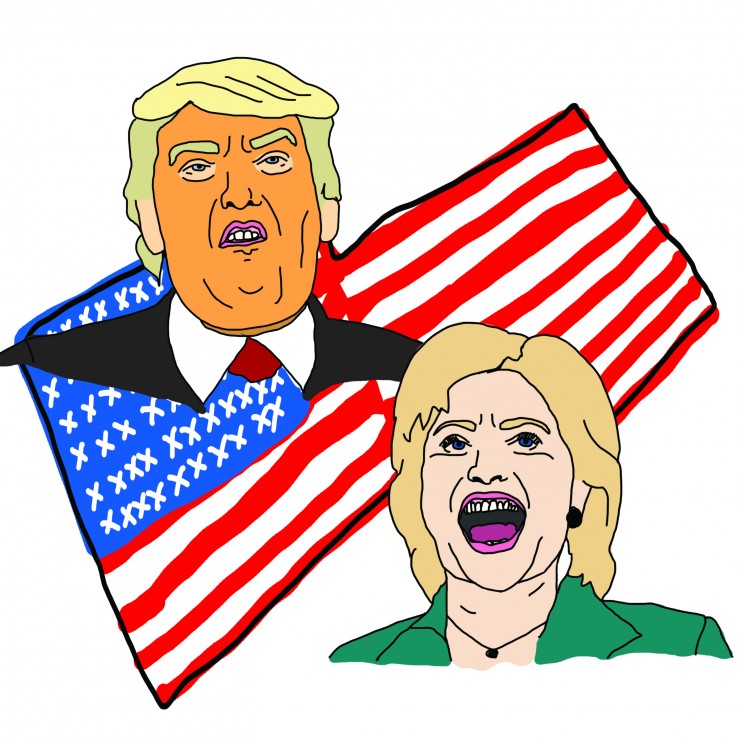At time of writing, the U.S. presidential election is a mere week away. After what has felt like eons, America will finally decide between Hillary Clinton, the potential first ever woman to lead the United States, and Donald Trump, the potential first ever human Cheeto to do the same.
Instead of perpetuating the continuous media onslaught of information that’s plagued the entire election, the Martlet isn’t going to bother predicting who will be crowned the victor on Nov. 8. (We’d hate to be proved wrong.) Rather, we’re going to take some lessons from what’s happened to our southern neighbours.
To start, while it’s easy to paint Trump’s supporters as ignorant, racist, or even fascist, it’s important to remember that much of their current ideology has been driven by desperate economic circumstances: many who used to be considered middle-class and who had no trouble subsisting are now experiencing economic pressures like never before. It’s also worth noting that our situation in Canada isn’t drastically different, and there are many individuals facing unprecedented economic hardships here. And without addressing these issues of economic inequality, we can only expect our own far-right contingents (translated in real life into the proliferation of neo-Nazi groups, nationalist groups, and pro-Aryan groups) to grow and thrive. Let’s not forget the language of “Canadian values” that Kellie Leitch has used in her campaign for leadership of the Conservative Party of Canada — language that has the potential to condone the same type of hateful behaviour that we’ve seen coming out of the States during the presidential campaign.
Also troubling is the trend of large corporations making astronomical campaign donations to candidates, effectively influencing policy once those candidates are elected. Bernie Sanders rallied against big money in politics throughout his extraordinary campaign (extraordinary in the sense that a self-proclaimed socialist got as far as he did), and while he ultimately failed to gather the primary votes that Clinton did, Trump managed to effectively harness that same desire to rid the American political system of big money.
Canadian politics are no stranger to these types of corporate interests influencing policy development, most recently with the B.C. Liberals (and the national Liberals, to be fair) taking much softer stances on issues of fossil fuel development. What candidates everywhere seem to be ignoring is that by appeasing large corporations, governments are contributing to growing inequality and increased stress on the social welfare system. People will only be pushed so far before they’ll start gravitating to candidates that seem to speak to them and understand their hardships. If Trump is any example, the loudest voices also tend to be the most extreme, and people will support almost any ideology if they feel like they’re being heard.
So while Canadians scroll through their social media feeds, rolling their eyes at Ken Bone, candidates like Leitch, who tap into the anger and vitriol of the desperate, are only getting stronger. We’re lucky that we have the advantage of viewing the ugliness of the U.S. election from slightly afar, but if there’s one thing above all to be learned from the U.S. election, it’s this: be critical of the institutions and elected officials that claim to speak in our best interests. If not, we may just find ourselves in the same electoral trash heap come next spring.








